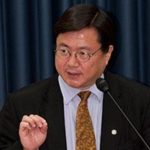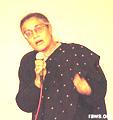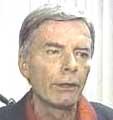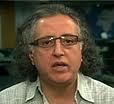End the Drug War
In 1971, Nixon launched a war on drugs calling drug use “public enemy number one.” Since then like a recurring nightmare, various presidents have continued the war on drugs. Four decades on, a consensus has emerged that the war has not only failed but it has ruined countless lives and wasted tons of money. More than $1 trillion has been flushed down the toilet. Despite evidence that punitive measures backfire, our jails and prisons are full of people convicted of smoking weed. There are clear signs that attitudes toward drugs, particularly marijuana, are shifting. Latin American countries with Uruguay leading the way are hitting the reset button. Uruguay has legalized the consumption, sale and distribution of pot. The time is long past to develop new mechanisms to establish humane and sustainable alternatives to the drug war, especially cannabis.
Recorded at the University of Colorado.
Speaker

Sanho Tree
Sanho Tree is a Fellow at the Institute for Policy Studies and director of its Drug Policy Project, which works to end the domestic and international so-called War on Drugs and replace it with policies that promote public health and safety. He has been featured in over a dozen documentary films and has appeared in hundreds of print and broadcast interviews.






Joleen Quitugua –
I am still processing what I heard on the radio just now. In my 39 years, I have never heard a radio broadcast that was so unequivocally clear in it’s message. Mr. Sanho Tree’s discussion rang true and with such courage, that I simply had to post my two cents. My two cents is “Bravo” to Mr. Tree and all the powers that brought him to my 30 year old truck radio. Thank you, and I would yield the mike to you any day.
Thomas Zaslavsky –
The details Mr. Tree tells us about how the “War” on drugs promotes illegal drug gangs and use are startling and make a powerful argument for a reversal of policy. We knew about the misallocation of “drug war” funds to policing instead of healing (drug treatment programs), but not about the rapid technological evolution that defeats the “drug war” and the southern border fence, and the degree to which the “War” is defeated by unemployment, poverty, and hopelessness in the neglected parts of our population.